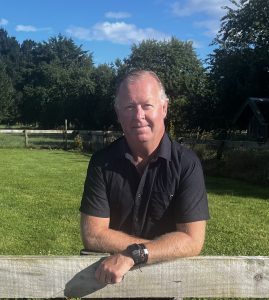Many organisations prepare BIMs for their relevant incoming Minister. Unusually, Rural Contractors NZ CEO Andrew Olsen has chosen to openly share his to the new Ministers of Agriculture, Immigration, Transport and Environment
Dear Ministers, Let’s get straight to the point. New Zealand needs its farmers and farmers need rural contractors and therefore so does your government. Our nation’s economic mainstay – the $26b dairy export industry – would fall over without the feed our members provide (they also support a lot of other sectors like arable cropping, sheep farmers and horticulture.) So, here’s what you need to do to keep our members in business and your MPs in the near clean sweep of rural seats you’ve won.
- Remove job checks from the Accredited Workplace Employers Visa. It is horrifyingly cumbersome and unwieldly; getting space in MIQ was easier. Rural contractors aren’t dodgy businesses packing dozens of foreign employees into a house and giving them occasional low-paid work. Our members treat their skilled foreign machinery operators like family and often they return year after year. A Working Holiday Visa can be turned around in two hours yet to bring back a skilled worker, who has already been here several years in a row, can take two months. We’ve delivered this message directly to your PM. I trust you will sort this so any imports our members want here to harvest maize in autumn can come without delay. Don’t make the choice to work in Canada or Australia easy for the overseas skilled worker. There is competition for this workforce and the current version of the AWEV is an impediment to the primary sector.
- Revisit the AWEV median wage approach.
Primary sector businesses importing labour are under pressure to meet the demands of the median wage. Rural contractors will happily pay above the median for the most experienced operators; however, the vast majority have the basic skills and are paid far more than the Kiwi doing the same job. With on farm inflation running at 16%, urgent relief is needed and addressing the hikes to the median wage for primary sectors is imperative.
- Look at the science not the rhetoric on agrichemicals.
In 2021, the Environmental Protection Agency began a review of glyphosate. Some 465 submissions were received, 60% from non-users of glyphosate, who felt it was a “toxic poison” that should be banned or at least restricted. Don’t listen to the noise as European politicians are now doing. Last year, the EU’s food safety agency EFSA found “no critical areas of concern” with use of glyphosate and EU officials recommended renewing its use for a further 10 years beyond its expiry date of 15 December 2023. Then the politicians began quavering. Whether our EPA delivers a similar finding or not, you’ll come under pressure to ban or restrict Glyphosate. Let science not sentiment decide. It’s been used here since the 1970s with enormous benefits for crop production.
- Get the rules sorted on agricultural transport.
Rural contractors are subject to complex and in some aspects outdated licensing and rules for operating machinery on public roads. There are multiple Government agencies involved – Waka Kotahi, Police, WorkSafe, and Ministry of Transport. What we need is all of these stakeholders on the same page to urgently discuss and agree on resolving these legacy licensing and rules.
- Urgently review the business restraints of David Parker’s unworkable National Policy Statement for Highly Productive Land.
The NPS for HPL is already making itself felt in district plan reviews. It does not support our members’ business needs and nor do the consent processes contemplated make any sense for rural contractors who wish to expand their business or start a business close to their clients – the farmers. Minister Parker promised: “The NPS will greatly improve how we protect highly productive land from inappropriate sub-division, use and development”. In fact his challenging consent pathways do not serve the greater good vis a vis ensuring the national interests of producing food and animal welfare are best served.
Ministers, our constituents appreciate you’ve got a lot on your plate. We hope you’ve had a good summer break by the time you read this. Now it’s time to get moving on these crucial changes – for everyone’s benefit.
Andrew Olsen, Chief Executive, Rural Contractors NZ Inc.

